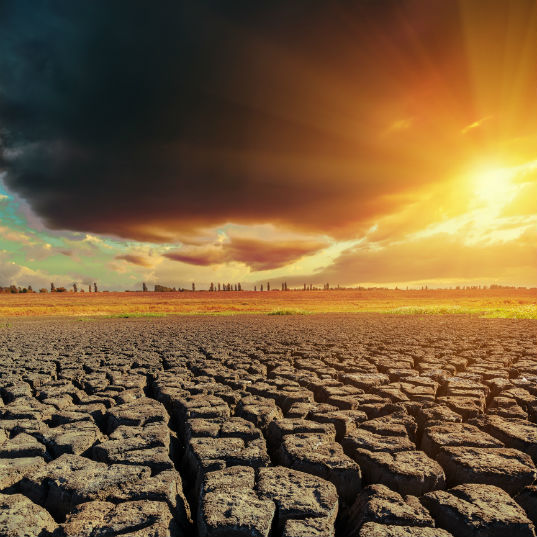A proverb says that "there is no worse blind man than the one who doesn't want to see," and despite the vast scientific evidence, there is still a part of the population that denies climate change relying on false myths and lies repeated over and over again.
Which are the negationist arguments most used by skeptics and how can they be disarmed? Here are some of the most widespread examples and their answers based on scientific research.
1. Volcanoes emit more CO2 than human activity
It is true that volcanoes shed carbon dioxide and naturally contribute to global warming. However, every year they emit less than 1% of the total emissions of CO2 that pollute the atmosphere, while human activity is the greatest emitter.
2. There is no global scientific consensus on climate change
More than 97% of the scientific community affirms that climate change is a reality and is dangerously accelerated by human action. The Intergovernmental Panel on Climate Change (IPCC) is a group of two thousand scientists from around the world who are independent from governments or companies that since over 25 years ago value and publish research on climate change and possible mitigation and adaptation solutions. Its results reflect without a doubt the incidence of men in global warming.
3. Climate change is a natural process of the planet
The Earth is constantly changing since its formation and has gone through different eras like glaciations, among others. However, these changes need thousands of years to be made visible, and the current increase in the average temperature of the planet since the pre-industrial period (1.1 degrees Celsius) is happening with a celerity that does not correspond to the natural cycles of the planet.

4. The effects will take time to be noticed, not even our children will see them
In the 1970s, when climate change began to gain scientific and social relevance, it was claimed that its effects would begin to be felt after several centuries. However, in just forty years, the rise in temperatures is more than patent: the nine hottest years in history since records have been kept (1880) have taken place in the last thirteen years, and since 2014, every new year has beaten the previous year's temperature record.
In addition, global warming is already having palpable effects such as sea level rise, acidification of the oceans, increasing the likelihood of natural disasters such as hurricanes, fires and floods, among others. It also causes climate refugees, the destruction of flora and fauna and, ultimately, the destruction of economic systems.
5. This is a solar cycle change like those that have happened in other times
There are times indeed when the incidence of the sun on Earth is more or less intense. However, we have been in a cycle of less solar disturbance for the last 35 years, in spite of which global warming has increased.
6. Increasing the average temperature by a couple of degrees is not harmful
Based on our perception of temperature, and considering that in the same day it may be common to face abrupt changes of up to 20 degrees, it might not seem a big problem that the thermometers increase by an average of two points. However, what seems like a minimal difference for us, is devastating for agriculture, flora, oceans, and species of insects and animals whose survival is tightly linked to climatic conditions. In fact, an important percentage of planetary biodiversity is already suffering from it.
This is the case of the flycatcher, a bird native to the Netherlands whose offspring were born at the same time as the caterpillars, their main source of food, hatched. As temperatures rise, the caterpillars advance their egg output half a month and the flycatcher no longer finds food, so its population has decreased by 90%.
Sources: Ecologistas en Acción, Expansión, El Tiempo, EFE Verde, El País and Cáritas.